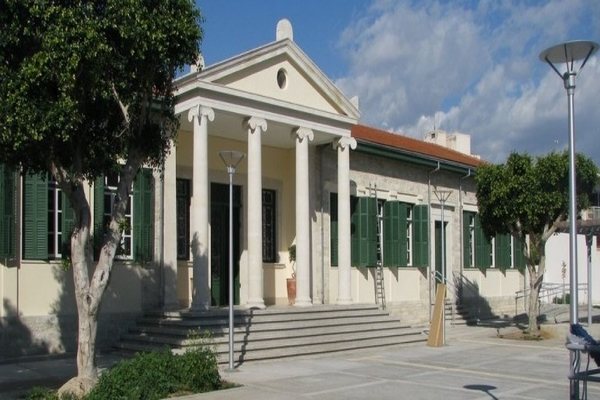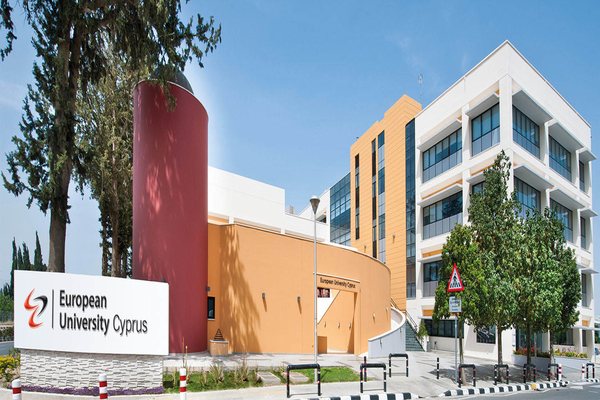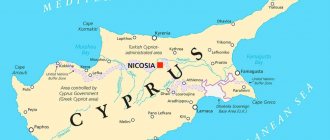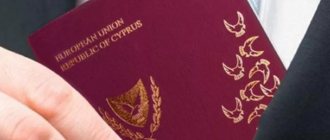In Europe, Cyprus is not for nothing called the “university island”, given the number of higher education institutions per capita. A number of local universities, with international accreditation, are among the best in Europe and are regularly mentioned in various professional rankings. For some, this may be a big discovery, but higher education in Cyprus is valued by both local residents and representatives of foreign countries, and graduates with diplomas from Cypriot universities find work quite quickly. On the other hand, the learning conditions here are very strict, and simply “serving a number for show” will not work even for students of paid universities.
Cyprus Education System – Key Features
The main feature of the educational system of the Republic of Cyprus is the significant participation of the state in the upbringing of children.
Experienced teachers who take care of all the concerns for his diversified development up to 3 years, after which the child enters a children's educational institution (analogous to our kindergarten), where he studies until he reaches the age of 6. The teaching methodology in kindergartens in Cyprus is quite traditional, but it has some distinctive features. The program of classes for children is designed for a certain age, while teachers immediately teach children in an interactive manner using a bilingual system, which involves learning several foreign languages, the most popular of which are English and Turkish.
It should be noted that the level of service in preschool institutions is exemplary. The diet is determined by a certified nutritionist; all outdoor games are based on gymnastic exercises and physical therapy.
A typical kindergarten in Cyprus operates for about 12 hours, while several days a week (mainly on Wednesdays, Fridays and Saturdays) there is also a night group, which is very convenient for parents working shifts or planning a mini-vacation.
It is also important for the citizens of our country that there are several Russian kindergartens in Cyprus - for example, in Paphos, the Sun Angel's Nest children's educational institution operates at a school, and the Umka garden in the capital of the Republic (Nicosia) is a private institution. Of course, kindergarten services are paid, but it is really worth it.
Step-by-step process for obtaining a Cyprus study visa

To enroll in a Cyprus university, you do not need to come in person. Documents are submitted online or by mail. When the applicant is notified that he is a student of the selected university, he needs to apply for a visa.
You can apply for a visa remotely. The government of Cyprus has a positive attitude towards visiting students, 80 percent of those wishing to enter the chosen place. There will be no difficulties when applying for a student visa. For those wishing to study in Cyprus, there is a special migration department subordinate to the main migration authority of the republic.
Documents for obtaining a visa:
- Legalized certificate of secondary education and insert with grades. Legalization takes 20-30 working days.
- Legalized certificate of no criminal record, valid for 6 months.
- Legalized certificate of form No. 082-O confirming the absence of diseases that prevent entry to Cyprus. Validity period – 4 months.
- Photocopy of a valid passport. The passport must be valid for at least 2 years.
- A photocopy of the country's internal passport.
- 2 photos 35mm * 45mm.
- A bank statement for an amount not less than the amount required to pay for tuition and living on the island. The statement is valid for 30 days.
- Parental consent for training if necessary.
Documents must be translated and certified by a notary. Next, the package of documents is sent by courier service to the university, where an authorized person, after checking the accuracy, transfers it to the embassy.
The student will need to fill out an application for a pro-visa, which is completed online and is issued for 90 days. Upon arrival, the student changes his pro-visa to a student visa.
A pro-visa is issued and issued free of charge, but there are also costs in addition to training:
- payment for translation and notarization of all documents;
- passing a medical commission 100-150 €;
- payment for medical insurance upon arrival on the island – from 100 €;
- tax fee – 80 €.
Preschool education
Young children are sent to nurseries at six months of age. In this institution they are raised until they reach three years of age. Then children begin to go to kindergartens, where they are educated until they reach the age of six. Cypriot kindergartens adhere to the traditional system of work, but differ in their own characteristics.
A special program is drawn up for each child’s age. Education is conducted in two languages: English and Greek.
The work of preschool institutions is carefully organized. For children, a special, fully balanced diet is prepared, the observance of which is monitored by a professional nutritionist. There are always fun activities outside so that the child can breathe fresh air. Workers organize physical therapy and gymnastics lessons. Most often, a kindergarten operates for twelve hours, but there are institutions with night shifts.
Training program
Cyprus International University offers undergraduate, graduate, doctoral and professional programs:
| Faculty of Agriculture | Faculty of Humanities |
|
|
| Faculty of Communication | Faculty of Economics and Management |
|
|
| Faculty of Education | Faculty of Engineering |
|
|
| Faculty of Fine Arts | Faculty of Health Sciences |
|
|
| Faculty of Law | Faculty of Medicine |
|
|
| Faculty of Dentistry | Faculty of Pharmacy |
|
|
| School of Applied Sciences | School of Tourism and Hotel Management |
|
|

View the university brochure (PDF / 520 KB)
Secondary education in Cyprus and colleges
In general, it takes twelve years to complete secondary education. The first stage lasts from six to twelve years and has the status of passing primary school. At the next stage, lasting from twelve to fifteen years, students take a gymnasium course. These two periods are considered mandatory. Cypriots have all this time had the right to study for free in government institutions. In all schools, students study the same standard curriculum.
In secondary schools, the working year begins in September and ends in May. They attend lessons for five days, each day lasting seven hours. Between classes there are breaks that take ten to fifteen minutes. Long holidays in Cyprus between academic years take place during the summer months.
During the year, children are also given vacation time to rest. All students wear a special school uniform.
At the next stage of education, students attend lyceums for three years. Upon graduation, graduates are awarded a high school diploma and a humanities or technical certificate. With these documents, students can already work in offices or in technical specialties. In addition to government institutions, there are also private schools, where education is provided for a fee.

Intermediate between high school and university are colleges that teach specific occupations (e.g. banking, electrical engineering, mechanical engineering, secretarial science).
Americanos College you can study in the field of hotel management, after which you can find a niche in interacting with vacationers on the island.
After taking the Cyprus College course, you have the opportunity to receive a bachelor’s degree, and graduating from the Higher College of Technology allows you to continue your education abroad.
Choosing a public university in Cyprus
Public universities in Cyprus offer classical education in both humanities and technical fields.
The University of Cyprus is suitable for those who are more interested in doing research in their chosen specialty. The Open University can help you achieve a higher degree through distance learning. At the University of Technology you can master complex fields in IT and industry.
The advantages of studying at public universities in the country are professional teaching staff, low tuition prices compared to private institutions, and prestige.
But there are difficulties for foreign students. Most programs are conducted in Greek and Turkish, which you must be fluent in.
Higher education system in Cyprus
As in most countries, the academic year at universities in Cyprus is divided into 2 semesters: autumn (September - January) and spring (February - March). There is also an optional (summer) semester (June–July). Education in Cyprus is carried out according to a fairly flexible system: students can independently decide whether they will attend classes in the summer, depending on the number of subjects chosen and the intensity of the educational process.
To obtain a degree, a student must complete 120 credit hours in core subjects and 6-9 credit hours in foreign languages over the entire period. Students take exams at the end of each semester. After two years of study, students can receive a standard certificate (associate degree diploma). After four years of study, you can receive a bachelor's degree, and if you study for 6 years, you can get a master's degree.
Colleges, which are considered part of the higher education system, are also very popular in Cyprus. After studying at college (4 years), you can master a specialty and receive a bachelor's degree. There are many colleges in the hotel and tourism business in Cyprus.
Higher education in Cyprus is becoming increasingly popular, with some universities and colleges allowing students to obtain a double degree. For example, at Intercollege, where students learn the basics of hotel business management, you can also get a diploma from the University of Indianapolis.
Public universities in Cyprus
Cyprus University
The University of Cyprus is the oldest university in the country, located in Nicosia, the capital of Cyprus. Founded in 1989, it accepted its first students within a few years. Today, over 4,000 undergraduates and 1,200 graduate students study at the university. Thanks to the high level of teaching and extensive research, it is the most respected public university in the country.
The main objectives of the University of Cyprus are the development of science and the dissemination of knowledge through education and research. Famous Cypriot, Greek and foreign scientists from Europe and America teach here.
The institution has its own research centers: oceanographic, archaeological, center for intelligent systems and networks KIOS, center for applied neuroscience, research center for sustainable energy Voss and other departments.
Languages of instruction
Training is conducted in the official languages of the Republic of Cyprus - Greek and Turkish. The departments of foreign languages also teach in English and French.
Structure and training programs
At the University of Cyprus you can enroll in a bachelor's, master's or postgraduate degree in one of eight faculties.
Like other public and private universities in the country, the University of Cyprus participates in international exchange programs for students and teachers. One of them, Erasmus, involves an internship or temporary study at a university in another country for a period of several months to a year.
Admission conditions
The university is open to citizens of Cyprus and Greece, Turkish Cypriots, Greeks and Cypriots from the diaspora, and foreign students. Up to 10% of applications are reserved for applicants with special needs.
Separate conditions are provided for each group of applicants:
- Citizens of Cyprus are admitted based on the results of national exams organized by the Ministry of Education and Culture. Exam subjects include modern Greek, mathematics, physics or chemistry to choose from, biology, and computer science.
- Turkish Cypriots can enroll after successfully passing the entrance exams conducted by the university. A high school diploma is required.
- Greek citizens are also accepted on the basis of entrance exams. Cypriots living in Greece also belong to this group.
- For Greek diaspora and Cypriots belonging to religious minorities under the Constitution of Cyprus, repatriated Cypriots and Cypriots permanently residing in other countries, a limited number of places is required, a high school diploma is required.
- Foreign students - high school graduates with knowledge of Greek or another language in specialized departments can be admitted on the basis of the results of the GCE examinations. The level of English language proficiency is confirmed by TOEFL, IELTS or other international exams.
The General Certificate of Education (GCE) is a certificate of general secondary education. This system has been adopted in the UK and several other countries. The document contains the results of passing final exams at school according to the classification:
- normal level (O);
- advanced auxiliary level (A1);
- advanced level (A).
More information about admission rules, required documents and submission deadlines can be found on the official website of the university.
Cost of education
Tuition at the University of Cyprus costs an average of €6,834 per academic year.
Open University of Cyprus
The only distance learning university in Cyprus. Opened in 2002 in Nicosia. The purpose of the university is to help those who do not have the opportunity to attend training, and those who have not received higher education, to continue it or acquire a new qualification. Today more than 4,100 students study here.
At the Open University, each student is given the right to choose their study schedule. In addition to bachelor's, master's and postgraduate courses, they teach the MBA program and conduct professional courses and trainings.
The degree obtained from the university is equivalent to a similar degree from any other recognized university in the world, regardless of the form and methods of teaching.
Languages of instruction
Training is conducted in Greek and English.
Admission conditions
To be admitted to undergraduate courses, you must graduate from high school, a six-year gymnasium, a lyceum or a similar institution of secondary education.
To enter the Master's level, it is required to obtain a Bachelor's degree from an institution of higher education in Cyprus or another country. It is important that this university is recognized by the Ministry of Education of this country.
Under a similar scheme, the prerequisite for admission to postgraduate studies is the completion of a Master's degree from a recognized university.
Some areas have separate requirements. Thus, to enroll in the “Study of Hellenic Culture” program, in addition to completing secondary education, the candidate must have a good command of foreign languages, depending on the specific specialization (English, French, German or Italian) and computer skills.
Cost of education
Studying at the Open University is cheaper than studying at the University of Cyprus. Prices range from €675 per study module at undergraduate level. The cost of a master's course starts from €1,350. Postgraduate programs start from €1,350 per academic year.
Cyprus University of Technology
A relatively young university with a pronounced technical bias. Opened in 2007 in Limassol. This university trains specialists in the fields of computer technology, mechanical engineering, civil engineering, chemical engineering, and agricultural science.
Competition at the Cyprus University of Technology has been and remains high. The ratio of applicants to admitted students is approximately 10:1. The university's programs are aimed at filling gaps in the national education system in areas of technical knowledge that are not covered by the University of Cyprus.
Languages of instruction
The University of Technology offers training in several languages: Greek, Turkish and English. English is used only in master's and postgraduate programs.
Structure and training programs
The university has six faculties, with 12 academic departments. In addition, the university has opened an International Institute and Language Center.
Admission conditions
Candidates are subject to standard requirements, the main one of which is to confirm completed secondary education when applying for a bachelor's degree or a bachelor's degree when applying for a master's degree.
Foreign citizens must know the language in which a particular program is taught. If the applicant has not passed the international language exams, he can take written or oral tests at the university, the Cyprus Embassy or accredited examination centers of a foreign country.
Cost of education
The Cyprus University of Technology has a common tuition fee for all students - €4,100 per academic year.
Universities
About 25 thousand students study at universities in Cyprus, about a third of them are foreigners. There are a total of 8 universities on the island - 3 public and 5 private.
State
- University of Cyprus;
- Open University of Cyprus;
- Cyprus University of Technology.
Private
- University of Cyprus Frederick (Frederick University - Cyprus);
- European University of Cyprus;
- University of Nicosia;
- Neapolis University Pafos;
- University of Central Lancashire - Cyprus.
There are more than forty private and several public higher education institutions in Cyprus that do not have university status. Most of them specialize in humanitarian areas - international relations, tourism, hotel business, economics, law.
In public universities, teaching is conducted in Greek and Turkish (some courses are in English), in private universities - only in English. To enter public universities, you must pass entrance exams; for private universities, you must pass an interview and an English language test.
Studying at public universities costs an average of 5-7 thousand euros per year, in private universities - from 5 to 15 thousand, depending on the faculty and level of study.
Documents required for admission
- a certificate of secondary education, translated into English or Greek and certified by a notary;
- questionnaire and application (usually filled out on the university website);
- copy of the passport;
- copy of the certificate;
- list of assessments;
- photo;
- if studying in English is expected - a copy of the IELTS certificate (above 6.5 points) or TOEFL (more than 550 points);
- Some universities have introduced an application processing fee (about 50 euros).
Accommodation in Cyprus for students costs approximately 5-9 thousand euros per year. This includes apartment rent (250-500 euros per month), food, transportation costs, etc.
It is important to note that non-EU students do not have the right to work for the first 6 months after entering the country, after this period - a maximum of 20 hours per week during school hours and 38 hours per week during holidays. The list of jobs available to students from non-EU countries is limited to the lowest paying options.
Higher education institutions in Cyprus
Cyprus is a fairly small state, so there are not many higher educational institutions on the island. Most universities offer instruction in English.
State universities
- The University of Cyprus focuses on research and innovation. At the university, special laboratories have been created for students and researchers, which are equipped for a specific field of activity: chemistry, biology, physics, etc.
- Open University of Cyprus offers training in such humanitarian areas as journalism, cultural studies, theater arts and linguistics. In addition, at the university you can study technical sciences, for example, computer and network security.

Cyprus University of Technology, where you can not only study, but also work as a researcher.
- Cyprus University of Technology consists of 6 faculties where students study diligently to obtain the coveted Bachelor's, Master's or PhD degrees. Communications and media, geotechnics, management and economics, mechanical engineering, electrical engineering - everyone can find the ideal program and start a career in Europe.
Private universities
- European University of Cyprus offers training not only in English, but also in Greek. Every year the university selects the best students who receive special funding. The amount of the scholarship depends on the average grade for the semester and the number of credits received.

The European University of Cyprus is a place where students from different countries come not only to receive a diploma, but also for an exchange semester.
- The University of Nicosia is one of the largest universities in Cyprus and is located in the capital city of Nicosia. It differs from other Cypriot universities in its ability to study online. Thus, it is possible to obtain a Master's or Bachelor's degree without having to move to Cyprus. In addition to online courses, the university also offers face-to-face teaching.
- Frederick University , in addition to the main three levels of education, also offers a professional diploma. This diploma is issued after two years of study and allows you to start working in a certain position, for example, as a nurse or mechanic.
- The British University in Cyprus is one of the most prestigious as well as the most expensive universities in Cyprus. The university focuses on training in areas such as business and management, law and engineering.










